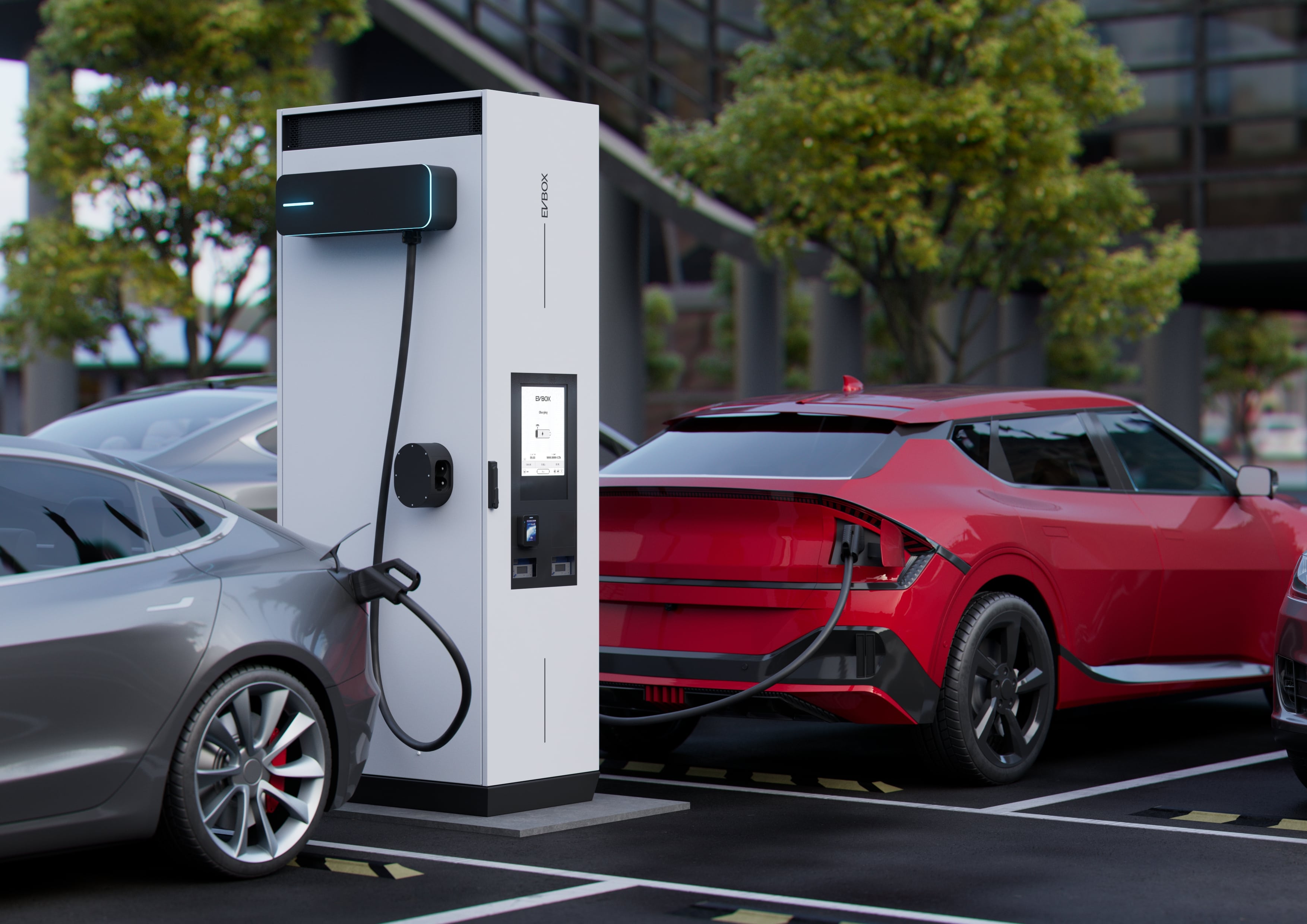
Last updated on April 22, 2022
Across Europe, there are many electric vehicle (EV)charging incentives available for both private citizens and businesses.
European state governments, cities, and regions as well as the EU itself see the installation of residential and commercial charging stations as key to accelerating electric vehicles adoption across the continent.
Incentive and grants are offered from Spain to Sweden and many places in between to motivate the uptake of electric mobility.
How this guide works
In this guide, we’ve split electric vehicle charging incentives into two categories: residential charging incentives and commercial charging incentives.
- Residential charging incentives accommodate private residents looking to install charging stations at their homes, as well as owners and tenants of multi-unit buildings (e.g., condominiums). Generally, the charging stations installed with the help of these incentives are only for private use.
- Commercial charging incentives apply to companies and public entities wishing to provide electric vehicle charging as a dedicated service (e.g., a municipality), additional service (e.g., supermarket car parks), or as a perk for employees (e.g., workplace charging).
Last updated on April 22, 2022
Across Europe, there are many electric vehicle (EV)charging incentives available for both private citizens and businesses.
European state governments, cities, and regions as well as the EU itself see the installation of residential and commercial charging stations as key to accelerating electric vehicles adoption across the continent.
Incentive and grants are offered from Spain to Sweden and many places in between to motivate the uptake of electric mobility.
How this guide works
In this guide, we’ve split electric vehicle charging incentives into two categories: residential charging incentives and commercial charging incentives.
- Residential charging incentives accommodate private residents looking to install charging stations at their homes, as well as owners and tenants of multi-unit buildings (e.g., condominiums). Generally, the charging stations installed with the help of these incentives are only for private use.
- Commercial charging incentives apply to companies and public entities wishing to provide electric vehicle charging as a dedicated service (e.g., a municipality), additional service (e.g., supermarket car parks), or as a perk for employees (e.g., workplace charging).
Overview of government incentives for EV charging per country
To view a specific country's incentives for EV charging, please use the links below:
- 🇦🇹 Austria
- 🇧🇪 Belgium
- 🇩🇰 Denmark
- 🇫🇮 Finland
- 🇫🇷 France
- 🇩🇪 Germany
- 🇬🇷 Greece
- 🇮🇪 Ireland
- 🇮🇹 Italy
- 🇱🇺 Luxembourg
- 🇳🇱 The Netherlands
- 🇵🇱 Poland
- 🇪🇸 Spain
- 🇸🇪 Sweden
- 🇬🇧 United Kingdom
Austria

In 2019, Austria launched the electric vehicle charging initiative e-Mobility Offensive. The latest instalment of this initiative, aptly called e-Mobility Offensive 2022 is valid until December 31, 2022, and includes a massive increase in federal funding for electric vehicles, residential charging infrastructure, and commercial charging infrastructure.
Commercial EV charging incentives in Austria
- A subsidy of up to €30,000 is available to companies and public entities for the purchase and installation of DC charging stations designed to accommodate heavy goods vehicles.
- A subsidy of between €300 and €15,000 is available to companies for the purchase and installation of publicly accessible charging stations.
Residential EV charging incentives in Austria
The following residential EV charging incentives are available in Austria as long as the applicant can provide proof that the electricity used stems from 100 percent renewable energy sources.
- A subsidy of €600 for the purchase and installation of domestic charging stations is available for residents for single or two-family dwellings.
- A subsidy of €900 is available for the purchase and installation of an OCPP-compliant station to residents of multi-unit dwellings for a single-use installation.
- A subsidy of €1,800 is available for the purchase and installation of an OCPP-compliant station to individuals as part of a multi-use installation.
Further information for each of the three residential charging incentives can be found on the Austrian government's site.
Belgium

In Belgium, purchasing and installation of electric vehicle charging infrastructure is incentivized through tax returns and tax exemptions.
Commercial EV charging incentives in Belgium
A tax deduction is available for the purchase, installation, and grid connection costs for private and commercial parking, where charging infrastructure is available for public uses.
The amounts are as follows:
- Tax years 2021/2022: 200 percent deduction percentage for legal entities tax.
- Tax years 2023/2024: 150 percent deduction percentage for legal entities tax.
Conditions:- The charging point must be freely accessible to any third party (at least during the opening hours or closing hours of the business);
- The charging point must be notified to the Federal Public Service of Finance within the established time;
- Only charging stations that can be digitally be digitally connected, via a standardised protocol (OCPP) to a management system, including management system, including that of third parties by 1 January 2023 at the latest, which can provide information on the charging time and capacity, and whose connection is freely available to all users, shall be taken into account for this increased deduction.
Residential EV charging incentives in Belgium
- A 45 percent personal income tax deduction is available on the costs related to the purchase of charging infrastructure for private use. The tax deduction is available until the 31st of December 2022, and is reduced to 30 percent for the fiscal year 2023.
- Maximum amount: €1,500 per charging point and per taxpayer.
Conditions:- Must be digitally connected via a standardized protocol (OCPP) no later than 1st Jan 2023;
- Must be able to provide information on charging time and charging capacity;
- The charging point must use electricity that is supplied from a supplier that undertakes actions to supply only electricity produced from renewable energy sources, or which is generated on site from renewable energy sources;
Denmark

To incentivize the use of electric vehicles, Denmark offers tax reductions on the electricity used to power commercial electric vehicle charging infrastructure. Currently, there are no incentives for the purchasing and installation of charging infrastructure.
Commercial EV charging incentives in Denmark
- A tax reduction of around 1DKK (€0.13) per kWh applies to companies that provide electric vehicle charging on a commercial basis.
Finland

Finland offers incentives for both commercial and residential electric vehicle charging infrastructure in the form of subsidies. Helsinki has invested €4.8 million in public charging stations in the last few years—almost tripling the total number of charging ports in the country.
Commercial EV charging incentives in Finland
- A refund of up to 35 percent of the total purchasing and installation costs for charging infrastructure is available to companies that provide charging and use electric vehicles. This refund can increase to 50 percent if at least half of the stations offer power of 11 kW or more.
Residential charging incentives
- A refund of up to 35 percent (up to €90,000) of the total purchasing and installation costs for charging infrastructure is available to housing organizations that provide charging infrastructure for private use.
France

ADVENIR, The French EV Infrastructure Charging Program, was launched in 2016 to help finance private charging infrastructure for company fleets and in apartment buildings.
As part of its renewal for the period 2020 - 2023, the ADVENIR program has a budget of €100 million with the objective of financing more than 45,000 new charging points by the end of 2023.
The ADVENIR premium depends on the place of installation (condominium, private parking, roads, etc.), the power and use of the charging station (private, public).
To help you estimate the amount of your ADVENIR premium you can use our subsidy simulator.
Commercial EV charging incentives in France
There are various commercial charging incentives covered by the ADVENIR program. The incentives are as follows:- 60 percent of the investment, with a cap of €1,800 until March 31st 2022.
- 50 percent of investment, with a cap of €2,700 from April 1st 2022.
Residential EV charging incentives in France
The following residential incentives are available until 31th of March 2022:
- A tax credit up to the value of €960 is available to residents for the purchase and installation of an electric vehicle charging station.
- A grant covering up to 50 percent, up to €1,160, of the purchasing and installation costs of collective charging infrastructure is available to co-owners of condominiums.
Germany

In 2020, Germany committed to significantly improving its support for consumers purchasing electric vehicles in order to meet its target of having one million charging stations and 10 million electric vehicles by 2030. For 2022, the KFW has allocated funding for a total of €350 million.
This support equates to both national and regional incentives in the form of tax reductions and grants for both residential and commercial infrastructure.
Commercial EV charging incentives in Germany
- Companies can benefit of up to €45,000 for location, for the costs related to the installation of private charging.
Residential EV charging incentives in Germany
- All German residents can apply for a €900 grant for the purchase and installation of a charging station for their home.
Greece

Currently, Greece only offers incentives for the purchasing and installation of residential charging stations.
Residential EV charging incentives in Greece
- A grant of up to €500 is available for private individuals looking to install a charging station at their place of residence.
Ireland

In 2021, the Irish Government continues to provide a number of supportive incentives for EV charging infrastructure via the Sustainable Energy Authority of Ireland.
Commercial EV charging incentives in Ireland
- A grant of up to €5,000 to local authorities to support the development of on-street public chargers;
Residential EV charging incentives in Ireland
- A grant that covers up to €600 of the purchasing and installation costs for a charging station is available to private individuals.
Italy

In 2019, Italy launched the Eco-Bonus program to provide subsidies for electric and hybrid vehicles, as well as electric vehicle charging infrastructure. In 2021, The automotive fund for the purchase of low-emission vehicles was refinanced with €350 million.
The Eco-Bonus program aims to cut net emissions to zero by 2050 and mandates that electric vehicles should replace ICE vehicles by 2035 at the latest.
Commercial EV charging incentives in Italy
- Tax returns on up to €3,000 for the purchasing and installation costs of charging stations are available to companies until December 2021.
Residential EV charging incentives in Italy
- A refund of 110 percent (up to €2,000) of the total costs of purchasing and installing electric vehicle charging stations (up to 220 kW) in privately used parking spaces (individual or shared)
- The EV charging point installation must be part of wider energy efficiency renovations which will increase the energy efficiency of the building by at least 2 classes
- A refund of up to 50 percent (up to €2000) of the total costs of purchasing and installing electric vehicle charging stations up to 220 kW in privately used parking spaces (individual or shared).
Luxembourg

To encourage more people to adopt electric mobility, a new subsidy has been introduced in Luxembourg for the purchase and installation of new electric-vehicle charging stations.
The grant is available to natural persons who:
- Purchases and installs a new electric-vehicle charging station
- Owns or leases the parking space where the charging station is installed
Building managers may also submit applications on behalf of the person who owns the building as long as they obtain a written mandate to do so from the owner.
Residential Charging
The aid covers 50 percent of the VAT-exclusive cost of the purchase and installation of the charging station: for buildings with up to three parking spaces, the aid is capped at:
- €750 for a basic charging station
- €1,200 for an OCPP-compliant smart charging station; for buildings with 4 or more parking spaces, the aid is capped at
- €1,200 for a smart charging station
- €1,650 for a charging station managed by a shared smart charge-management system
Eligible installation costs include installing the charging station and installing and connecting a smart charge-management system, etc. For a comprehensive overview of the subsidy, the following link takes you to the Luxembourg Government's website. The application deadline is 30 June 2023.
The Netherlands

In the Netherlands, electric vehicle charging infrastructure incentives are mostly provided for private companies. However, residents in most regions can request the installation of a public charging port near their place of residence or work free of charge—this will also be freely accessible to all residents.
Commercial EV charging incentives in the Netherlands
- Deductions of up to 36 percent on costs associated with purchasing and installing charging stations are available to companies and public entities.
- A tax return of up to 75 percent of costs associated with purchasing and installing charging stations are available to companies and public entities.
Spain

In 2019, Spain launched its biggest electrification program, MOVES, with a budget of €45 million allocated to the promotion of electric vehicles and charging infrastructure. In 2020, MOVES II was established. Under the second iteration of the MOVES Plan, the Spanish government has secured €100 million for charging infrastructure and the acquisition of electric cars.
MOVES III was launched in 2021 to build upon previously established measures and is managed by local authorities.
Commercial EV charging incentives in Spain
- Up to 30 percent of costs for charging infrastructure up to 50kW.
- For infrastructure of >50kW, up to 55 percent of costs are funded for small companies, 45 percent of costs are funded for medium companies and up to 35 percent of costs are funded for large companies.
Residential EV charging incentives in Spain
A grant is available for the purchase and installation of charging stations in privately or shared used parking spaces in residential buildings.
- A grant of up to 70 percent of costs is available to inhabitants of municipalities with more that 5,000 inhabitants.
- A grant of up to 80 percent of costs costs is available to inhabitants of municipalities with less 5,000 inhabitants.
Sweden

In 2015, the Swedish Environmental Protection Agency and several administrative boards launched the Klimatklivet program in a bid to reduce CO2 emissions at a local and regional level. Today, Klimatklivet is one of Sweden's major policies targeting GHG emissions and has contributed a total of 5.4 billion SEK to more than 3200 different projects.
Commercial EV charging incentives in Sweden
- A grant that covers 50 percent of the costs associated with the purchasing and installation of both private and public charging stations is available to companies and public entities.
Residential EV charging incentives in Sweden
- A grant that covers 50 percent of purchasing and installation costs is available to private individuals who install a charging station at their home. A maximum of SEK 15,000 per charging point applies.
Poland

Commercial EV charging incentives in Poland
A program aims to support the development of electric vehicle recharging infrastructure and hydrogen refueling infrastructure to reduce the number of vehicles emitting CO2 and NOx and improve air quality. The program provides for the possibility of co-financing projects consisting in:
- Construction of a charging station with a power of at least 22 kW, other than a generally accessible charging station.
- Funding may be applied for by: local government units; entrepreneurs who have their registered office or branch in the territory of the Republic of Poland; cooperatives; housing communities; individual farmers.
- A grant of up to 25 percent of eligible costs for the construction of a charging station with a power of at least 22 kW, other than a generally accessible charging station.
Residential EV charging incentives in Poland
- A grant is available to cover up to 25 percent of eligible costs for the construction of a charging station with a power of at least 22 kW, other than a generally accessible charging station.
United Kingdom

The UK has developed a Road to Zero strategy aimed at making transportation in the four nations carbon-neutral by 2040.
Commercial EV charging incentives in the UK
- A voucher-based scheme that covers up to 75 percent of purchase and installation costs for up to 40 stations is available to companies.
- Tax benefits for costs incurred during the first year of expenditure on charging infrastructure are available to companies.
Residential EV charging incentives in the UK
-
A grant that covers up to 75 percent of the purchasing and installation costs of a charging station is available to private individuals. A grant cap is set at £350 (including VAT) per installation. Currently, the grant is available to all residents: homeowners and renters alike. Installations in single-unit properties need to be completed by 31 March 2022 and a claim submitted to the Driver and Vehicle Licensing Agency (DVLA) by 30 April 2022.
After 30 April 2022, the scheme will remain open to:
- Homeowners who live in flats.
- People in rental accommodation (flats and single-use properties).
Related articles

Emerging calibration laws in the fast EV charging market
Calibration laws are legal frameworks adopted by countries around the world to ensure public EV charging stations...

Getting the AFIR right to fuel Europe’s bold climate ambitions
The EV charging infrastructure we build today lays the foundation for tomorrow. To that end, Europe requires regulation...
.jpg?width=750&name=shutterstock_1913988745%20(2).jpg)
EV smart charging regulations 2022 explained
Electric mobility has been unquestionably emerging in recent years and is expected to continue growing exponentially in...
